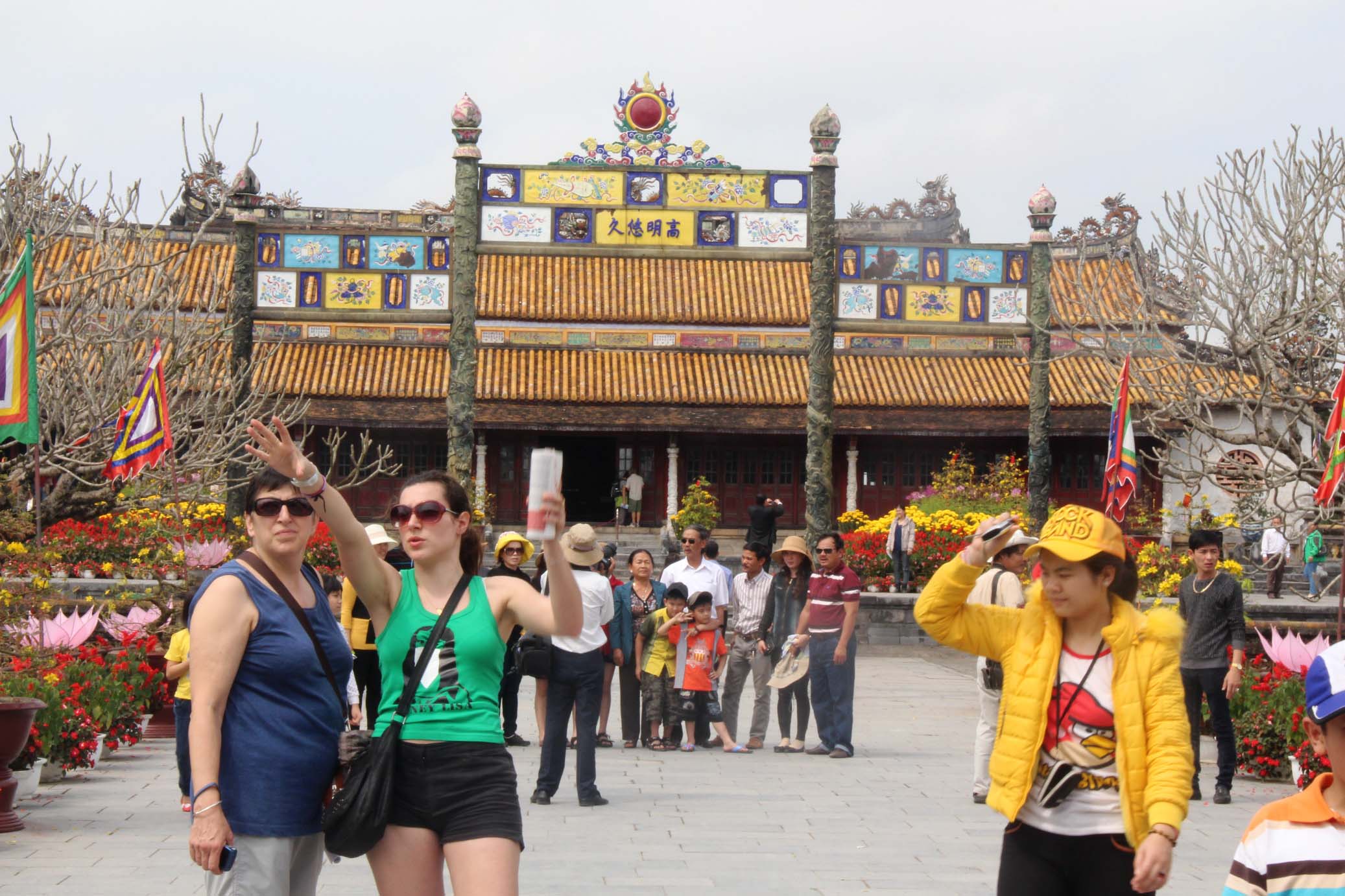Editor's Note: The Vietnam National Administration of Tourism has recently said that those travel operators who employ foreign guides will be penalized or even have their license revoked, depending on their offenses. The warning was given earlier this month following media reports that many foreigners are working as unlicensed tour guides in the country. Vietnamese tourism laws stipulate that a tour guide must have Vietnamese nationality and live in Vietnam.
Stivi Cooke, an Australian, works as an English language and hospitality teacher in Hoi An City in central Vietnam. He wrote this article in response to the administration’s warning. The opinions expressed here are his.
A recent announcement by the Vietnam National Administration of Tourism that warns tourism companies which employ foreign tour guides will likely lose their licenses is generating a lot of conversation among locals and expats.
The problem is that the warning denies the realities of 21st century tourism management, regardless of what country this ruling would apply. As the number of tourists visiting Vietnam grows, the training and number of local tour guides proficient in foreign languages has barely kept pace.
The government is doing what it can. Recently, the central province of Khanh Hoa set up a project to teach the Russian language to locals. Great! But what about the other fifteen major languages of tourists?
Yet, at least in the central areas of Vietnam, tourism is booming with travel agents, tour operators, bus operators, hotels, and homestays popping up everywhere. As each company strives to get some share of the market, the services provided expand. So this is the heart of the problem – how can you sell the services to foreigners with only the language skills of locals? This is not just a question of language skills – there is a wide cultural gap to consider.
I am sure there are great Vietnamese tour guides out there – I have met a few. However, that is part of the problem – ‘a few.’ There are still far too many guides with barely enough English to explain their itineraries, let alone answer difficult questions of local customs, lifestyle and economics. People are paying good money now to travel in some comfort with high expectations of tour services.
After all, if the tour looked fabulous on the website or on the brochure in the travel agency, we would expect the tour guiding to be great, yeah?
How many times in Hoi An have I seen tour guides confidently striding down the street, talking his head only to discover that his elderly guests are still trying to get off the bus? How many times have I seen a local boy with a guest list wandering around a hotel lobby or the buffet area struggling to pronounce his customers’ names so they can get on the bus for their tour? And I’d love to see a tour guide really explain, ‘Who were the Champa people?’
The vast majority of tours follow a predictable route, showing tourists the same things day in, day out. I like to joke that it is tougher than army training is. Early starts, long bus trips, getting on the boat, racing around, having a small break, on we go – stop for lunch – these are really fit for fifty year olds, aren’t they? Rushing back to the bus, a long trip home, collapsing at hotel, and complaining over beers with fellow travelers until midnight. Hmmm… Sounds like a holiday, yeah, right.
Tour guiding, as many local operators do it, is steering tourists this way and that way to the local cafes, tailor and souvenir shops to gain commissions. Nothing wrong with that… except quality. There are too many small shops that have no idea what international tourists would like to buy or do.
It’s the same with a lot of travel agencies. I’ve seen a lot of bike tours swing the corner pass my house day after day but as I was told by one tourist recently, “I had no idea where we were going and I couldn’t ask him what people were doing in the fields.” Given the rising prices of tours, this is not a sustainable model of business. Foreigners want ‘value’ for their money now and they really do communicate extensively via the Internet about good tours. The days of ‘getting away with it’ – a basic tour with no service or quality – are fast disappearing.
Foreign guides, as with foreign teachers, can be a model of quality for the Vietnamese to reach for. This does not mean foreigners are better than local guides; simply they are better able to understand the needs for rest, information, some history and background, and most importantly of all, negotiating a happy outcome for the guests.
While employing foreigners might give some tour companies an advantage, it is only a small one and unlikely to last long as other companies copy the idea. Since Vietnam’s tourism goals are to expand, it is time to ‘use’ the foreigners more. Learn from us – let us train you. From the north to the south, there are foreigners working to improve local business practices from bookkeeping, marketing, to sales and above all, creating new and interesting tourism products. It is all about money and that makes sense right? So why not use us more?





















































